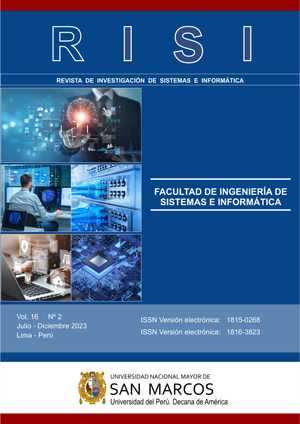E-Leadership from the Process Virtualization Theory perspective
DOI:
https://doi.org/10.15381/risi.v16i2.27153Keywords:
E-Leadership, electronic leadership, Process Virtualization TheoryAbstract
The Covid-19 pandemic accelerated the process virtualization phenomenon, which was gradually developing. Since then, processessuch as education, medical care, purchasing, and others, have been approached virtually using Information Technology. The process of leadership in virtual teams was no exception to this, thus forcibly evolving into electronic leadership or E-leadership, a construct proposed at the beginning of the century and addressed in this study from the Process Virtualization Theory perspective. The research suggests three objectives: determine the quality of E-leadership results in project management in Lima for 2022; provide evidence to support the Process Virtualization Theory by conducting an empirical study on E-leadership; and identify factors impacting the virtualization of the leadership process. A questionnaire was filled out by a sample of 43 professionals who served as virtual team leaders or members during the pandemic period in Lima. The data were submitted to structural equation modeling and exploratory factor analysis. The study results meet the proposed objectives, and one of the main objectives was to identify two new constructs that contribute to moderating the degree of virtualization of the leadership process. The results may also be relevant to understand the roles played by Information Technology and the leader in scenarios of leadership process virtualization.
Downloads
Downloads
Published
Issue
Section
License
Copyright (c) 2023 Javier Yovera Soto

This work is licensed under a Creative Commons Attribution 4.0 International License.
AUTHORS RETAIN THEIR RIGHTS:
a. Authors retain their trade mark rights and patent, and also on any process or procedure described in the article.
b. Authors retain their right to share, copy, distribute, perform and publicly communicate their article (eg, to place their article in an institutional repository or publish it in a book), with an acknowledgment of its initial publication in the Revista de investigación de Sistemas e Informática.
c. Authors retain theirs right to make a subsequent publication of their work, to use the article or any part thereof (eg a compilation of his papers, lecture notes, thesis, or a book), always indicating its initial publication in the Revista de investigación de Sistemas e Informática (the originator of the work, journal, volume, number and date).


